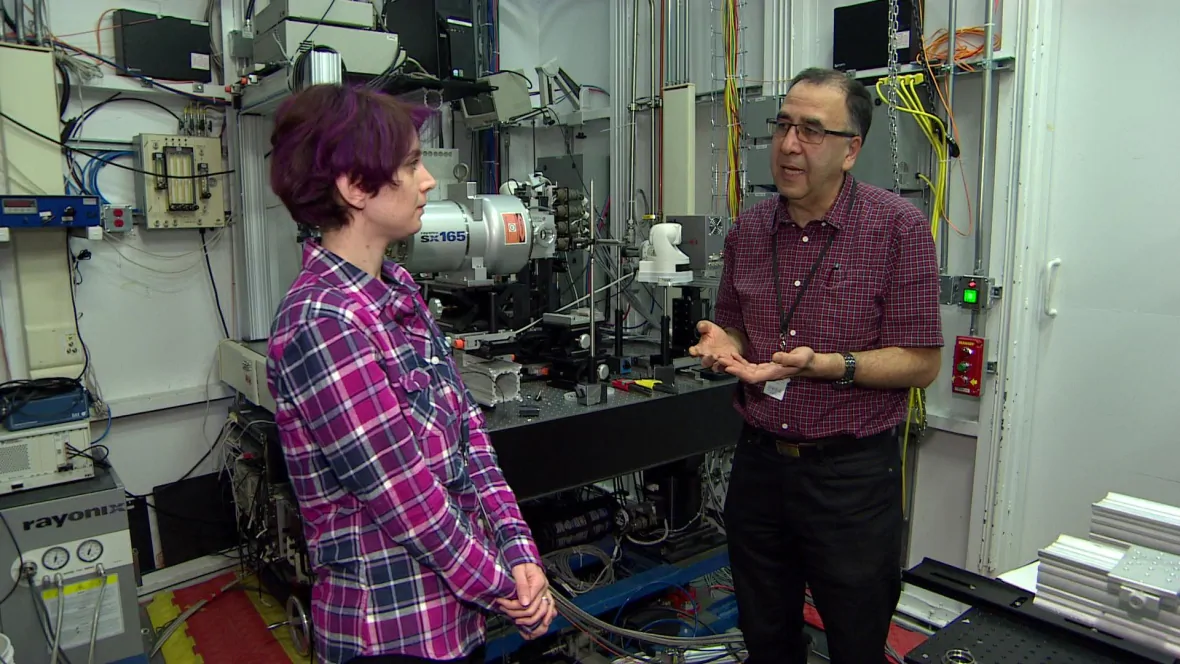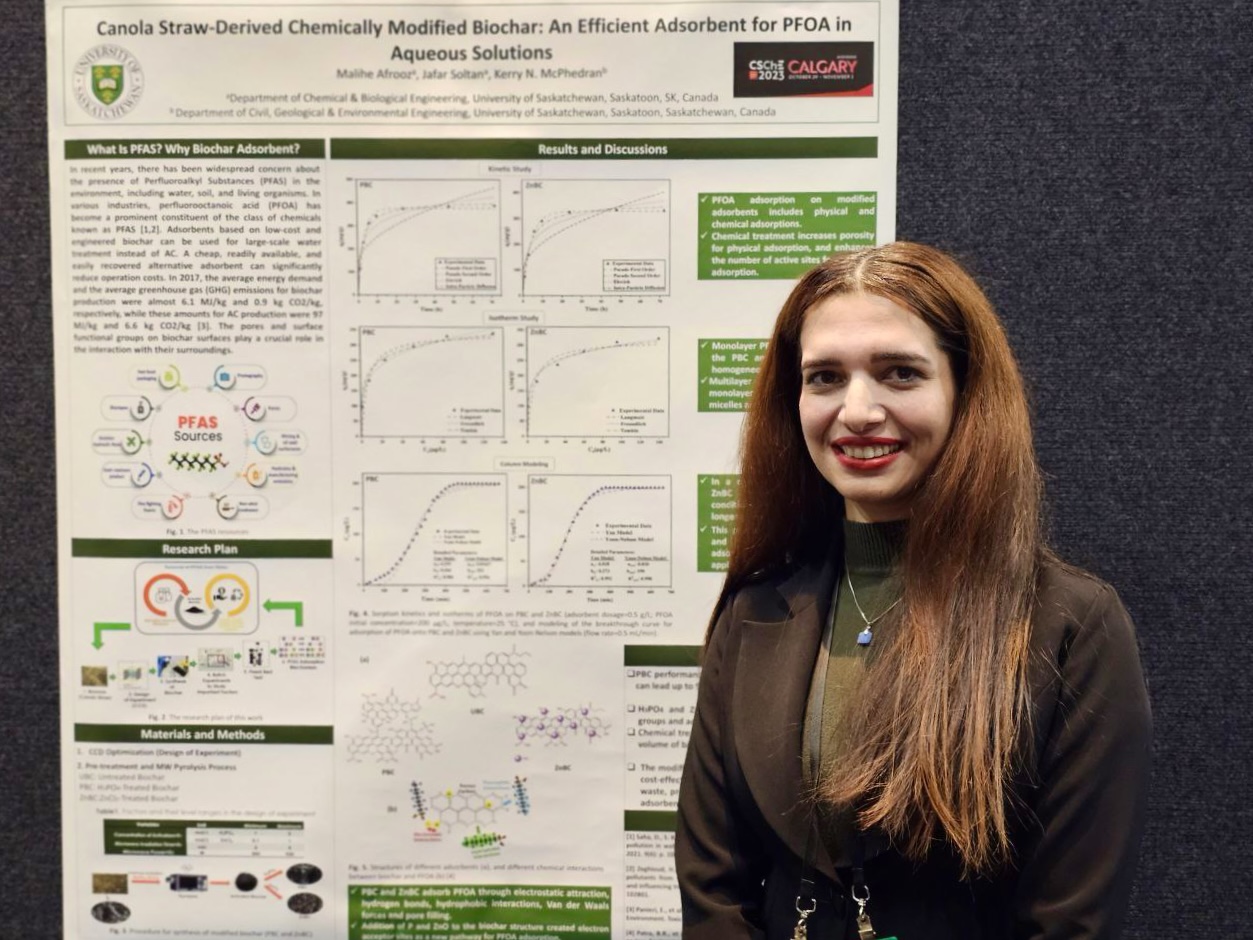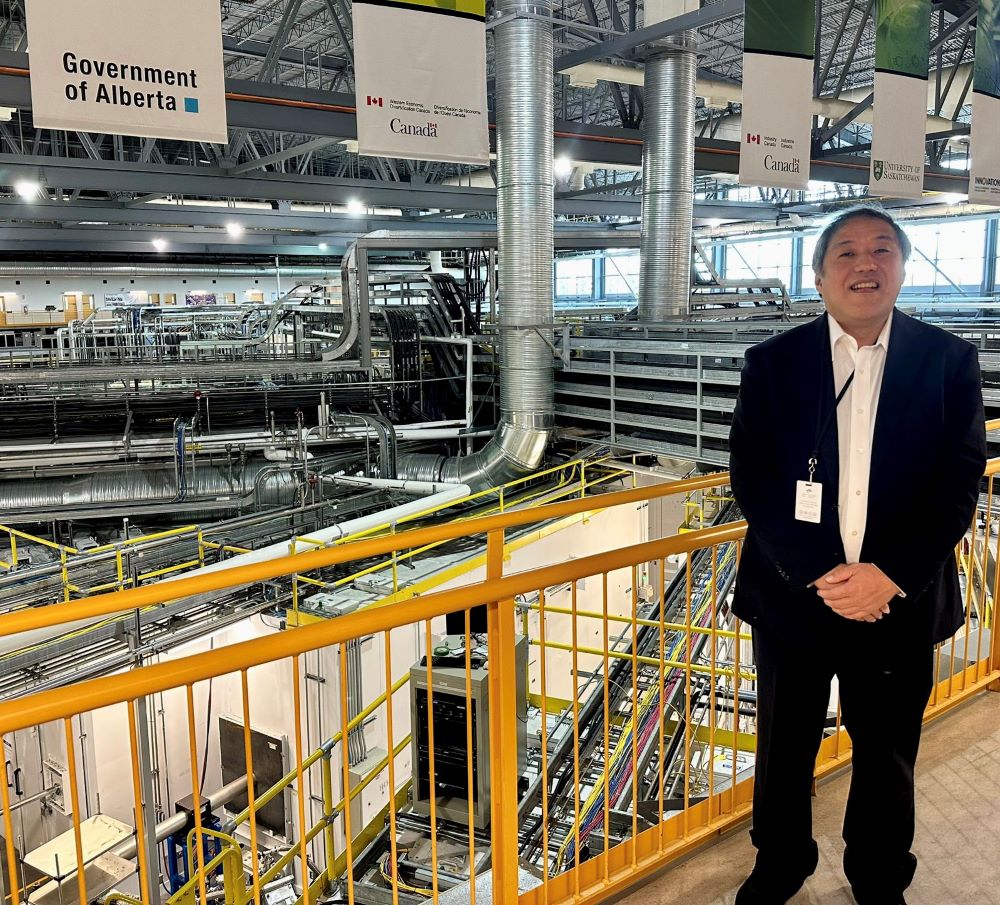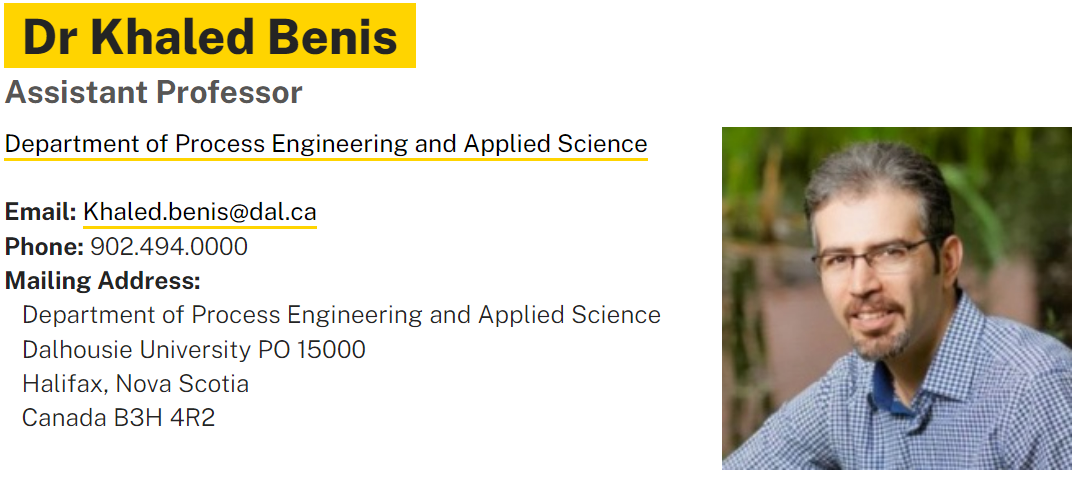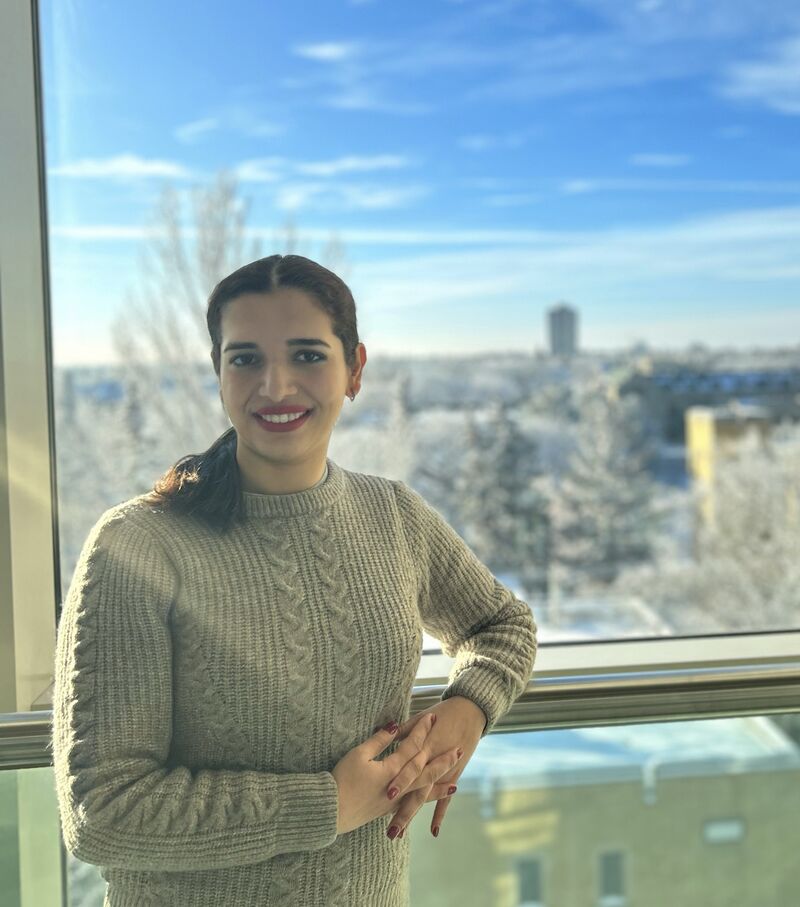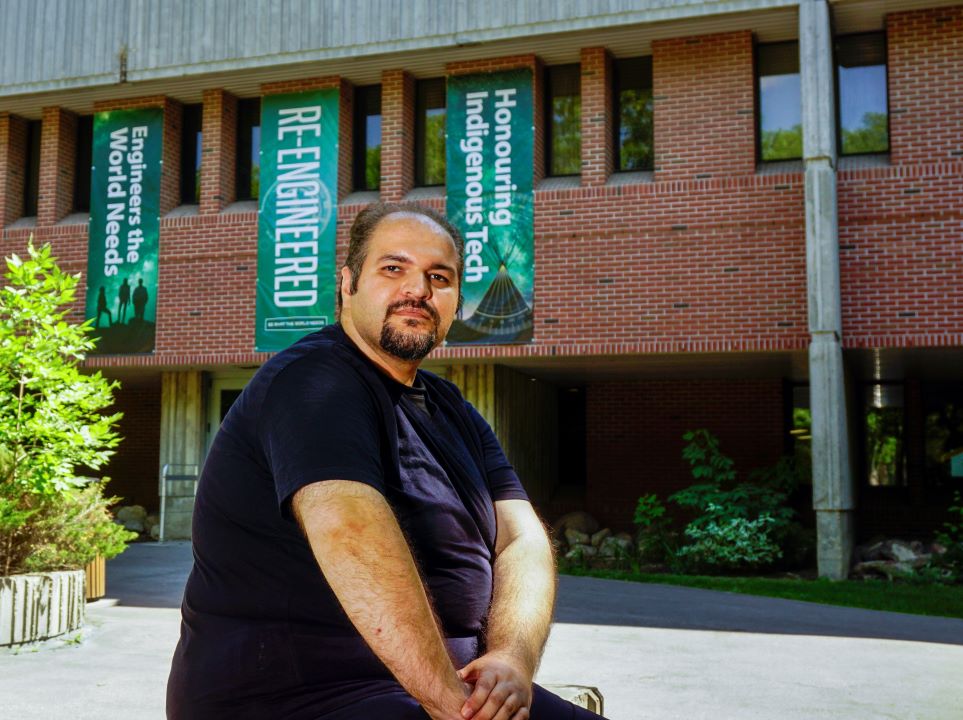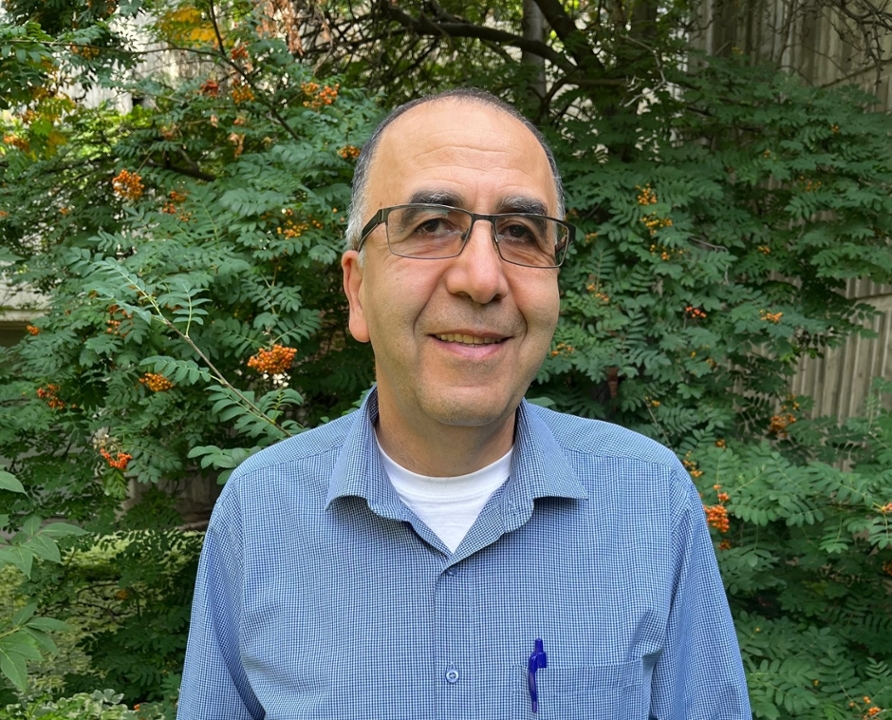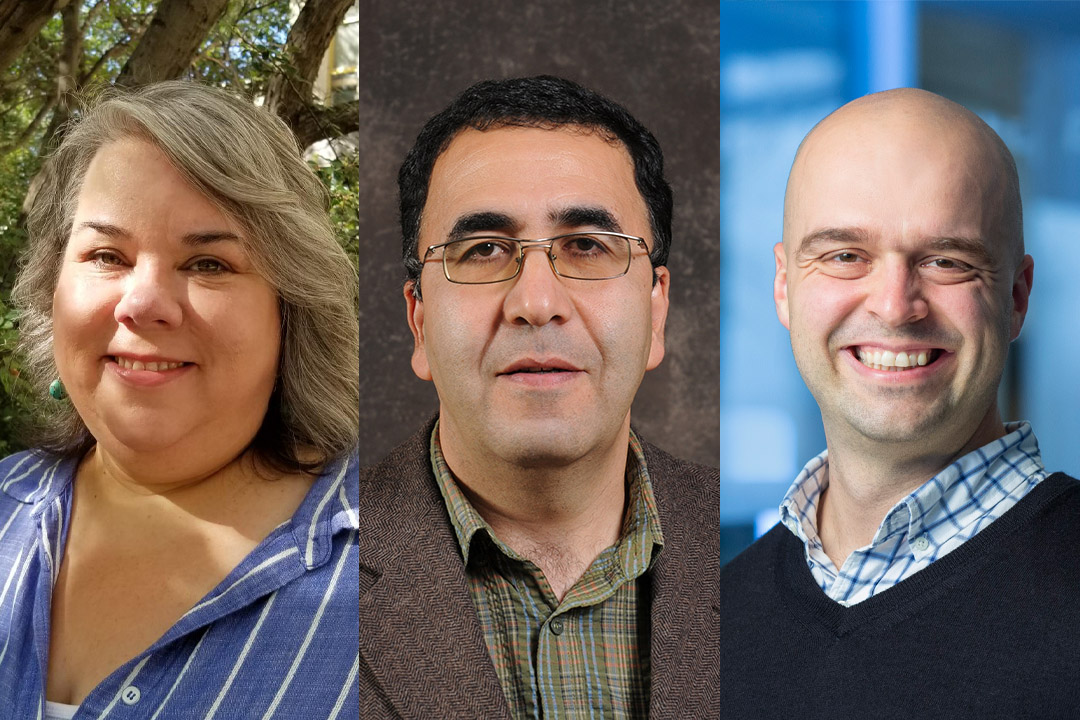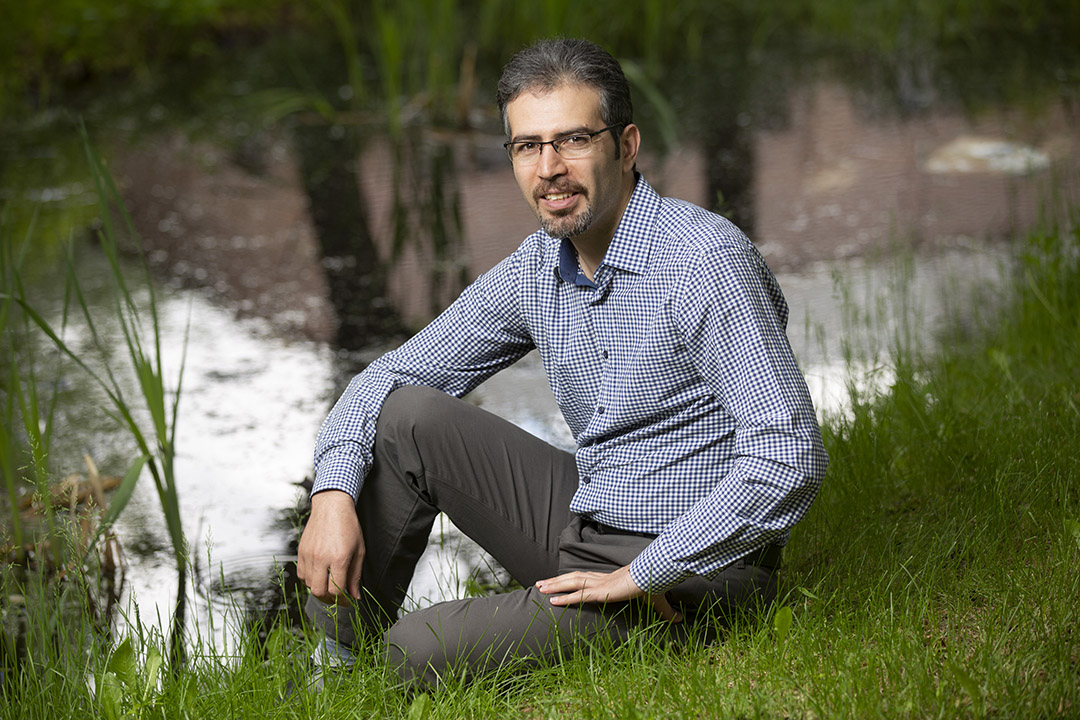2023
2022
June 2022
2021
November 2021
'We don't see agricultural residue as waste': U of S researchers tackling Sask.'s arsenic problem in water
November 2021
Sask. researcher says filters made of agricultural residue can reduce arsenic levels in water

www.cbc.ca
October 2021
Using agricultural waste to remove arsenic from drinking water
Over 200 million people in more than 70 countries, including some in Canada, are drinking water with a high concentration of arsenic.
September 2021
USask Engineering grads students place third in AquaHacking Challenge
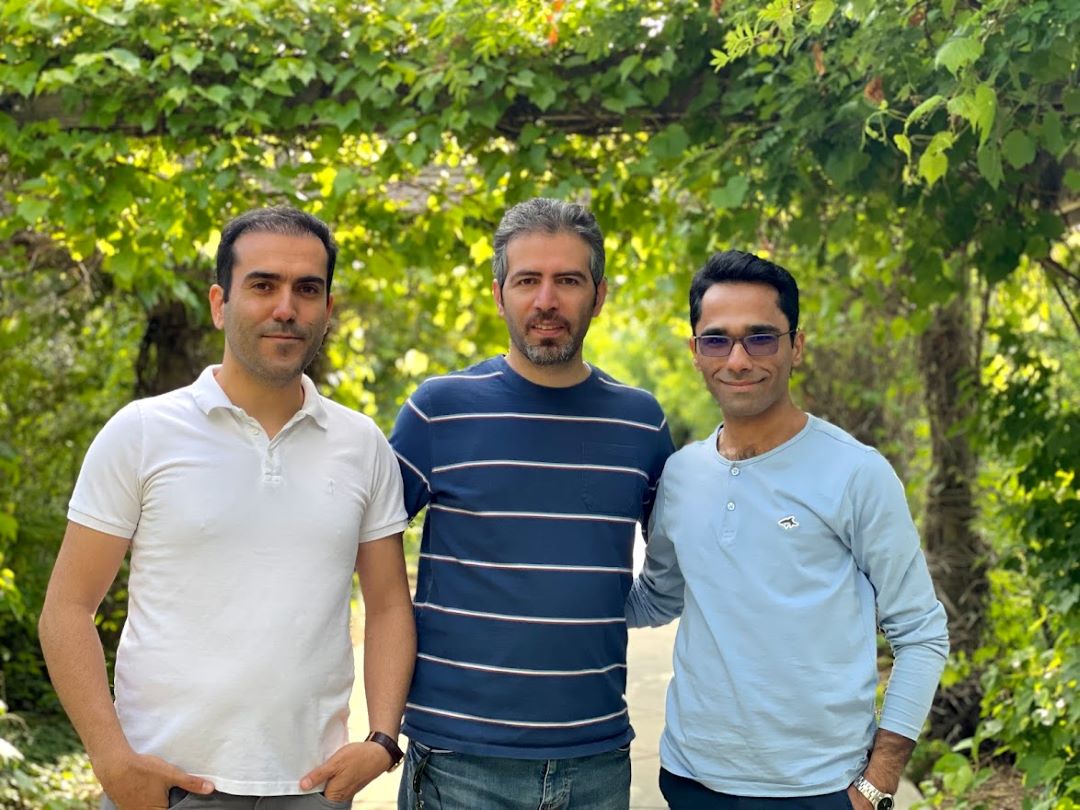
The ECOWATER team is (from left) Shahab Minaei, Khaled Zoroufchi Benis and Mohsen Asadi.
September 2021
Scientists tackle indoor air pollution
Filtering out pollutants from indoor air is very important for the health of Canadians - as we spend up to 90% of our time indoors.
August 2021
USask researcher seeks to minimize loss of fresh fruit and vegetables

The carbon footprint of food produced and not consumed has been ranked as the third top greenhouse
June 2021
Putting a virus-busting air filter to the test
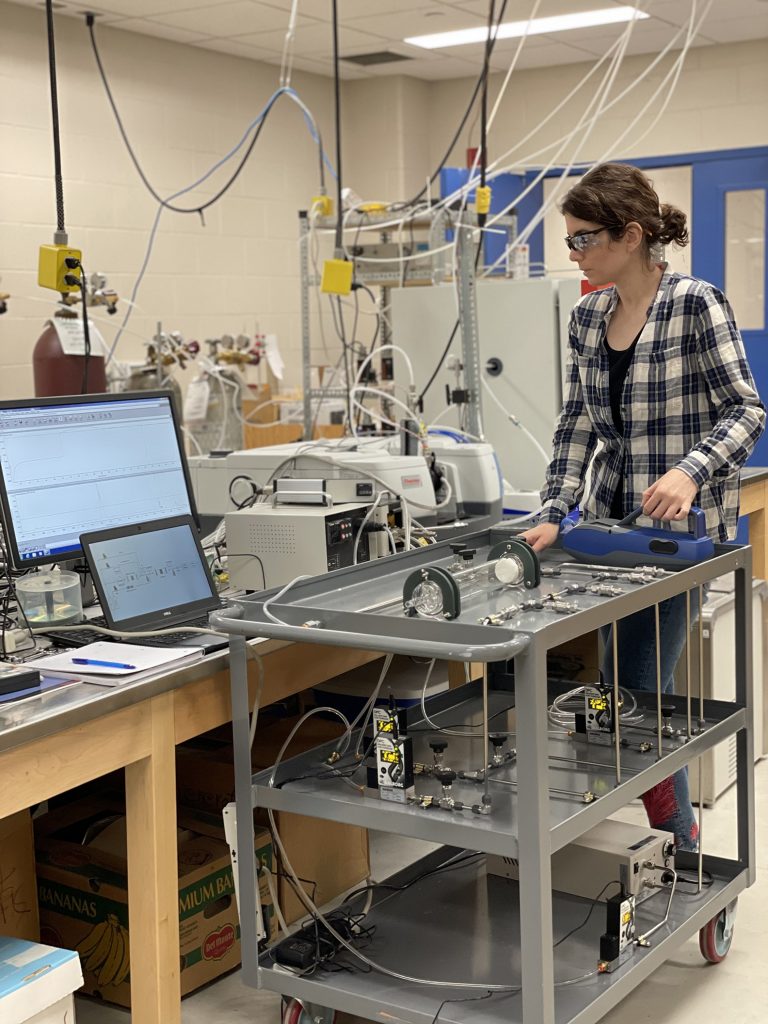
Researchers at the University of Saskatchewan are working on an air filter to destroy viruses like the one that causes COVID-19.
May 2021
Eco-Friendly Wastewater Treatment team selected as the finalist for 2021 Western Canada AquaHacking Challenge
Aqua Hacking Challenge Western Canada | Semi-Final Pitch from TKNL Diffusion on Vimeo.
February 2021
Nazanin's Photo was selected as the best in the EGCC's photo contest, research during pandemic category.
Nazanin Charchi Aghdam: Working from Dino Land! Picture is clear, no need to further explanation!
Typical PhD student Mom's Life in pandemic.
Janauary 2021
Removing arsenic with agricultural waste
(photo: cbc.ca)
Engineering researcher Jafar Soltan is testing the use of low-value agriculture residue—such as straw and meal from canola, barley, wheat, and mustard—to transform it into high-value adsorbents that remove arsenic from mining wastewater. Soltan and his team of experts will engage in research using the Canadian Light Source synchrotron and a pilot project that simultaneously works in two vital economic sectors: mining and agriculture.
2020
December 2020
USask researchers creating filter to clean viruses like the one behind COVID-19
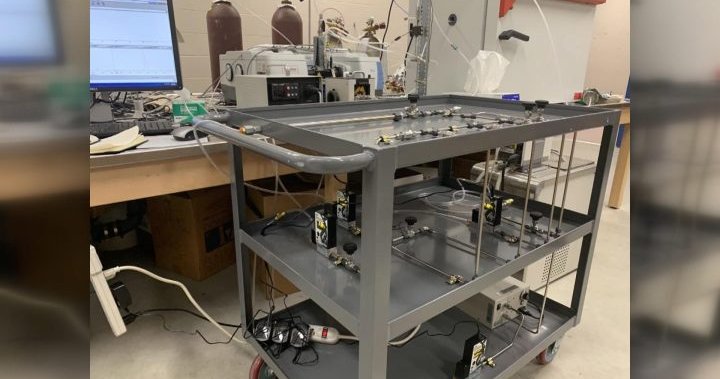
University of Saskatchewan Professor Jafar Soltan says the technology could be used to filter out all types of harmful viruses. (Chanss Lagaden/CBC News)
Watch the video in saskatoon.ctvnews.ca
USask wastewater analysis gave head start to health officials on COVID-19 spike

A University of Saskatchewan (USask) ecotoxicologist says researchers can give health officials at least a week’s notice on changes in the COVID-19 trend line through early detection in wastewater that may capture asymptomatic or pre-symptomatic cases (esemag.com).
USask researchers take aim at airborne COVID-19 virus
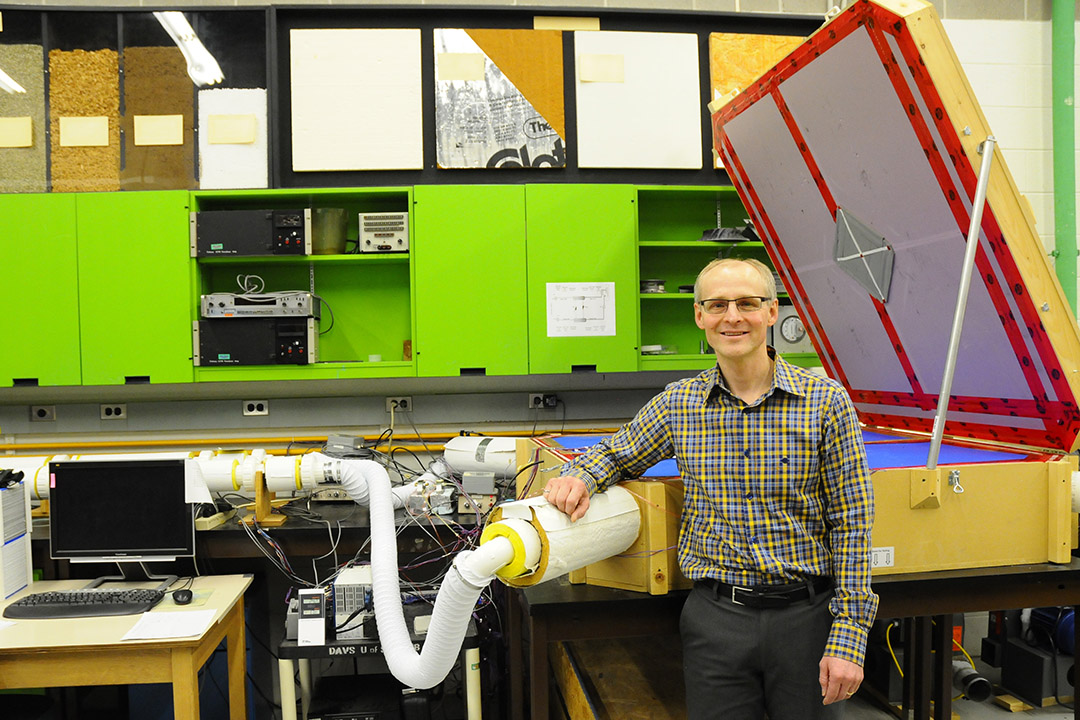
A new NSERC-funded project led by USask engineering researcher Jafar Soltan (PhD) which aims to inactivate airborne pathogens using an air sanitization device. Soltan will test the effectiveness and feasibility of the device for use in existing air conditioning systems.
January 2020
New technology could make greenhouses totally self-contained and energy efficient
